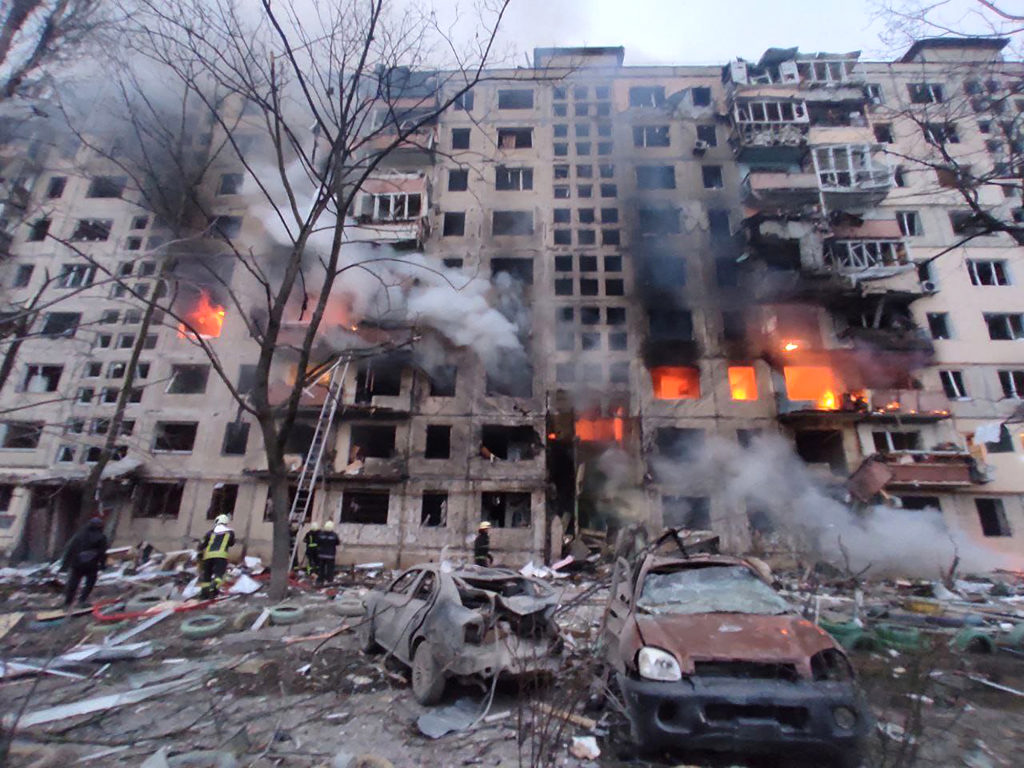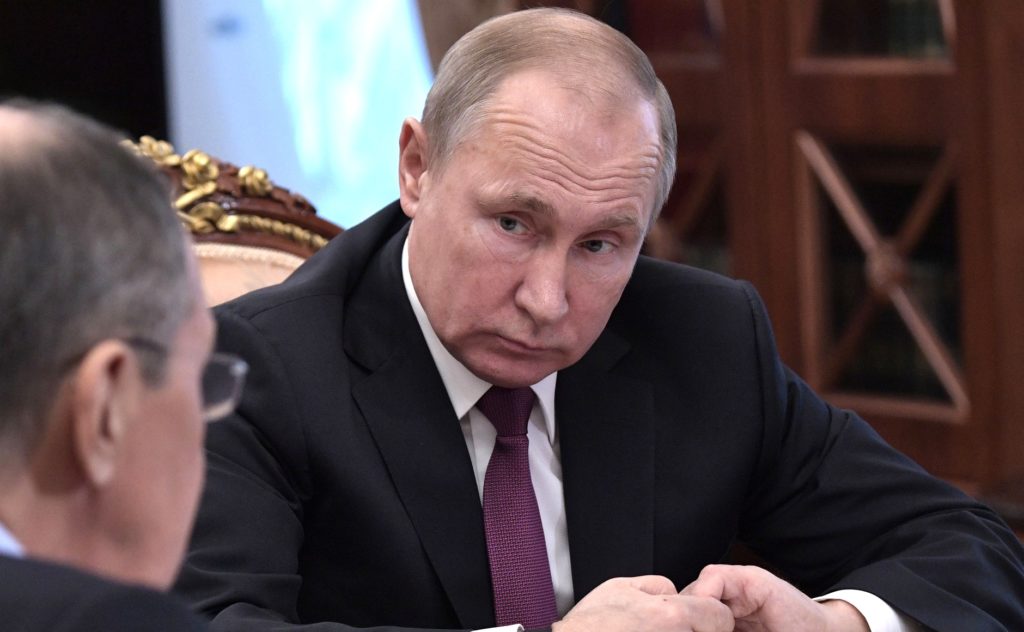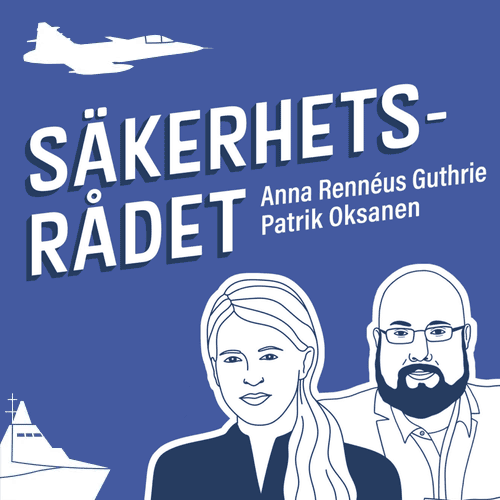After failing to capture Kyiv, the Kremlin focused its efforts on seizing and holding Donbas region and the south of Ukraine. In Donbass, Kremlin’s scorched-earth tactics have recently stalled. Russia’s slow advance in Ukraine combined with substantial military casualties mean that Putin desperately needs a pause in the war to regain his army’s weakening strength. This may temporarily freeze the conflict, but it will not bring a permanent peace to Europe. Despite recent setbacks, Putin has not given up his hopes to destroy Ukraine and restore Russia’s influence on the territories of the former Russian empire. To prevent another war, Russia must be decisively defeated and forced to abandon its imperial ambitions argues Dr. Olena Stavrunova and Mats Marcusson.

Ukraina står i brand. By Dsns.gov.ua, CC BY 4.0,
The concept “frozen conflict” lacks a precise definition but is mostly used to describe a situation where active armed conflict has come to an end without a peace treaty between the parties. Russia is involved in most frozen conflicts in the recent history by instigating separatist conflicts in Post-Soviet states and installing puppet regimes that have no international recognition. Transnistria, South Ossetia and Abkhazia, so-called ”people’s republics” in Donetsk and Luhansk all are examples of such policies.
After failing to capture Kyiv, Kremlin aims to seize as much of Ukraine as possible and to “freeze” the conflict by establishing a ceasefire and entangling Ukraine in protracted and futile peace negotiations. This development may be welcomed by those tired of the war. However, as the Donbas experience shows, a frozen conflict with Russia is not the end but a stepping stone towards the complete destruction of Ukrainian statehood and further assault.
We know that Putin’s ambitions do not end in Ukraine. His historical “essays” and comparison of himself to Peter the Great show that he believes that Russia has the right to territories of the former Russian empire. We don’t know which country he will attack after Ukraine; we only know that he will do so.
After six months of fighting Russia is feeling the heavy toll of the war. Western countries have imposed sanctions on exports to Russia’s import-dependent industries. The sanctions are crippling Russia’s economy and hampering the production of new weapons. At the same time, the firm Ukrainian resistance supported by western weapons and supplies has imposed heavy losses on Russian troops and created the need for mass mobilization in Russia. These problems will become more salient later in the year when the bulk of arms and ammunition from Ukraine’s allies reach the battle fields and Ukraine will attempt to regain territories in the counter-offensives.
People are greeting Ukrainian defenders in liberated Balakliya. One man in this video even stand on his knees. It’s hard to describe emotions. But it’s a beginning. Still a lot people in Ukraine dream to see their town liberated from Russians. pic.twitter.com/N2vxFaZmpg
— Oleksandra Matviichuk (@avalaina) September 8, 2022
This scares Putin. He needs to temporarily freeze the war so as to restore his troops and replenish his arms and ammunition. However, this frozen conflict will not bring peace, it will just deepen the long-term security and economic problems in Europe and the rest of the world.
First, a frozen conflict will allow Putin to restore political influence he lost after the unprovoked and brutal invasion. Putin will use this period to sow division among Ukrainian allies through propaganda and disinformation campaigns and try to take advantage of war fatigue stemming from high energy prices, food shortages, and diminished media attention. He will use the truce to try to negotiate the lifting of sanctions that now hamper Russia’s economy and military industries.
African and Asian countries are especially vulnerable to both the emerging food crisis and disinformation. True to form, the Kremlin blames the sanctions for the food crisis. Attitudes among the EU countries are not uniform either, and some European countries are more susceptible to Putin’s influence than others. Orbán in Hungary, the Five Star Movement in Italy, German and Greek public opinion will be targeted by the Kremlin during the frozen stage of the conflict. Also, a lower media coverage of the war during the ceasefire will work in Putin’s favor. Given sufficient time with little or no reporting, public will care more about their own living standards than about Ukraine, which might give politicians and governments less reasons to support Ukraine and/or sanction Russia.
Second, a frozen conflict will deepen the humanitarian catastrophe currently unfolding in the occupied Ukrainian territories and prevent displaced Ukrainians from returning home. The occupied Donbas provides a strong argument why a new frozen conflict can never be allowed. Minsk I and II agreements which the Kremlin never honoured, allowed the occupants to terrorise its population, ruin it economically and create irreversible environmental damage after being unable to manage confiscated chemical plants and mines. The occupants’ atrocities against the populations in Donbas and Crimea are widely reported by the UN and human rights organizations. The FSB-run concentration camp Izolyatsia became synonymous with Russian occupation.
The Russian occupants are replicating Izolyatsia on a larger scale through “filtration camps” in the newly occupied areas in Ukraine. Thousands of Ukrainians are illegally detained, interrogated, tortured, raped, and murdered in these camps. The Russian atrocities are not restricted to these camps. Outside of them, the Ukrainian population is being forcibly deported to Russia, families are separated, elected officials are abducted and murdered, cultural objects are destroyed, Ukrainian books are burned, Russian curricula and language are forcibly introduced in schools where children are forbidden to speak Ukrainian. Putin attempts to annihilate not only Ukrainian statehood, but also Ukrainian culture, language and history in this genocidal war. The occupants destroy the economy of these territories with little hope for it to ever be rebuilt by Russia. The longer the occupation continues, the harder it will be to re-settle these areas and re-integrate them into Ukraine.

Foto: kremlin.ru/Wikimedia Commons.
Third, if Putin is able to achieve a frozen conflict in Ukraine, he will sell it to Russia’s population as a victory. This will solidify his political support in Russia and will increase the duration of his regime and hence the chances of a new war in the future. Furthermore, if Putin emerges relatively unscathed after waging a brutal war, this will embolden other authoritarian aggressors and will make the life of our planet less secure.
But if a frozen conflict cannot be allowed, what can be done to prevent it? To begin with, Putin’s best chance to freeze the conflict is from a position of strength. That would enable him to seize as much Ukrainian territory as possible and to attempt to impose a large number of his demands on Ukraine. This can be prevented in the short term by a continuous flow of weapons and ammunition to Ukraine. It is important that these include not only defensive but also offensive weapons, allowing Ukraine to regain territory and strike at Russian supply lines and ammunition depots inside Russia. To ensure Ukraine’s victory and Russia’s defeat, this needs to be complemented by establishing a pooling of resources enabling Ukraine to order and purchase weapons directly from manufacturers without the approval of different countries’ restrictions of re-exports of weapons due to licenses.
In the longer term, Ukraine’s possibilities to independently secure its borders must be strengthened. The granting of EU candidate status to Ukraine is a first step in this direction but is not enough. It must be complemented by security guarantees by its supporters in order to attract foreign investors and help Ukraine’s economy to transform and integrate into the EU economies.
Dr. Olena Stavrunova, Associate Professor at University of Technology, Sydney.
Mats Marcusson, Ph.Lic., retired European Commission official.
